LEWISTON — For the eighth time in its long history, Bates College formally installed a new president Saturday, New Jersey native and legal scholar Garry Jenkins.
“What a joyful day,” said a beaming Jenkins as he stood before hundreds of people gathered in celebration in Merrill Gymnasium to “celebrate the amazing, historic, life-changing Bates College.”
Greg Ehret, who chairs Bates’ board of trustees, called it a “very happy day for our college community.”
The 90-minute ceremony offered huge heaps of tradition, including handing Jenkins the records kept starting in 1855 by Bates’ first president, along with oft-cited hopes for an even brighter future for the widely respected liberal arts institution.
When he took office last summer, Jenkins, 53, became the first Black and the first gay president of one of the first colleges in America to accept women and Black students.
James Reese, associate dean for International Student Programs at Bates, who has served at the college long enough to have worked for five of its presidents, said Jenkins offers “the promise of an invigorating new chapter at Bates.”
In Jenkins’ address, titled “Rising Together,” the new president said the ceremony “represents exciting beginnings and celebrates some historic firsts.”
“I feel, intensely, the weight and honor of standing before you today, embodying many firsts. In many ways, a rarity in higher education leadership,” he said.
“I remember a time, not too long ago, asking, would our nation’s most selective colleges ever be open to a Black president? To an openly gay president? Would that be possible? Was that a dream too big?
“I am so glad that today, with places like Bates in the world, and with people like those who make up this community, no dream is too big.”

Jon Lee, second from right, acknowledges the gratitude his husband, Garry W. Jenkins, expresses for his support Saturday as Jenkins is installed as Bates College’s ninth president. On the right is Gov. Janet Mills, and on the left are Jenkins parents, Garry C. and Leslie Jenkins. Andree Kehn/Sun Journal
With tears in his eyes, he thanked his parents, sitting in the front row, for instilling in him, and his brother, “a belief in the power of education, the importance of thinking for yourself, and the value of building and supporting community.”
Jenkins said his parents, a public school teacher and a computer programmer, worked long hours and second jobs, sacrificing “to provide the two of us with every opportunity, especially when it came to education. I cannot possibly thank them enough. I am so grateful.”
He also credited his husband, law professor Jon Lee, for “his encouragement, brilliance, support and willingness to embark on this new adventure with me” and for slipping easily “into a new role as Bates’ ‘first friend.’”
Jenkins said he views Bates, which has about 1,800 students, as “an improbable place,” like any “residential, small liberal arts college” with “lofty ideals and mission” that require lots of resources and personal attention to those it admits.
From its first days, Jenkins said, Bates adopted the “radical notion” that women and people of different races should be able to study alongside men, learning together and “steadfast in its idea of what it meant to be fully human.”
It was an outlier, Jenkins said, and a century ahead of the rest of higher education in America.
“We led the way,” Jenkins said. “So, yes, improbable. And yet in improbability, there is great potential. And I see potential everywhere at Bates.”
“Bates just radiates potential — reaching and stretching and developing into an even mightier version of itself,” he said. “But it also instills a sense of potential in those who work and study here. A sense that you can find meaning — find purpose — you can find who you are, and who you want to become, at Bates College.”
“I can’t wait to see what we can do to help Bates rise, together,” Jenkins said.
The college planned to hold the installation ceremony for Jenkins shortly before Halloween, but the Oct. 25 mass shooting in Lewiston forced Bates to delay the event until spring.
A moment of silence for the shooting victims recognized the loss suffered by the entire community.

Hiroya Miura conducts the Bates College Orchestra in playing the Festive Overture by William Grant Still during Saturday’s inauguration ceremony of Garry W. Jenkins as Bates College’s ninth president. Andree Kehn/Sun Journal
Jenkins also noted what he called “an unimaginable crisis” and expressed support for “the helpers” who “jumped in and reminded us how strong and caring we are.”
“There was tragedy in the events of late October,” Jenkins said, “but there was also grace and beauty in the response. I know this community will hold both these truths as we continue to move toward the future.”
Jenkins assumed the college presidency on July 1, the day after his predecessor, Clayton Spencer, stepped down.
In the months since, he has become a fixture at Bates events, from sports competitions to academic showcases, and has traveled extensively to meet with Bates alumni and donors across the country.
One of the co-presidents of the student government at Bates, senior Rebecca Anderson, said that in Jenkins’ time in Lewiston he has “signaled repeatedly that we all belong here — all have a place here — all have a contribution to make and a mark to leave on this college that we all care for so deeply.”
“You have encouraged us all to be leaders, to be part of the solution,” Anderson said. “And your warmth and dedication inspire us to do just that.”
Born in Newark, New Jersey, Jenkins attended public schools through middle school. After that, he attended Delbarton School in Morristown, New Jersey, and then Haverford College in Pennsylvania, a small, liberal arts institution much like Bates.
Jenkins later earned graduate degrees in public policy and law from Harvard University.
He served as chief operating officer and general counsel of the Goldman Sachs Foundation, a $200 million-plus international corporate foundation, after graduating from Harvard Law.

Clayton Spencer, Bates College’s eighth president, enters Merrill Gymnasium during Saturday’s inauguration ceremony for her successor, Garry W. Jenkins. Andree Kehn/Sun Journal
Jenkins moved on in 2004 to become a dean at Ohio State and then became the dean of the University of Minnesota Law School, the position he held when Bates offered him its presidency.
Joan Gabel, chancellor of the University of Pittsburgh and former president of the University of Minnesota, said that Bates “could not have made a better choice for a leader of an institution so steeped in history, so deep in reputation, and so vibrant in momentum.”
Gabel said Jenkins, who worked closely with her in Minnesota, will be “a leader who will ensure these attributes are nurtured to help accelerate Bates’ next chapter of greater meaning and global impact — and a leader who will ensure every member of this community can lean in and be their best self.”
Send questions/comments to the editors.


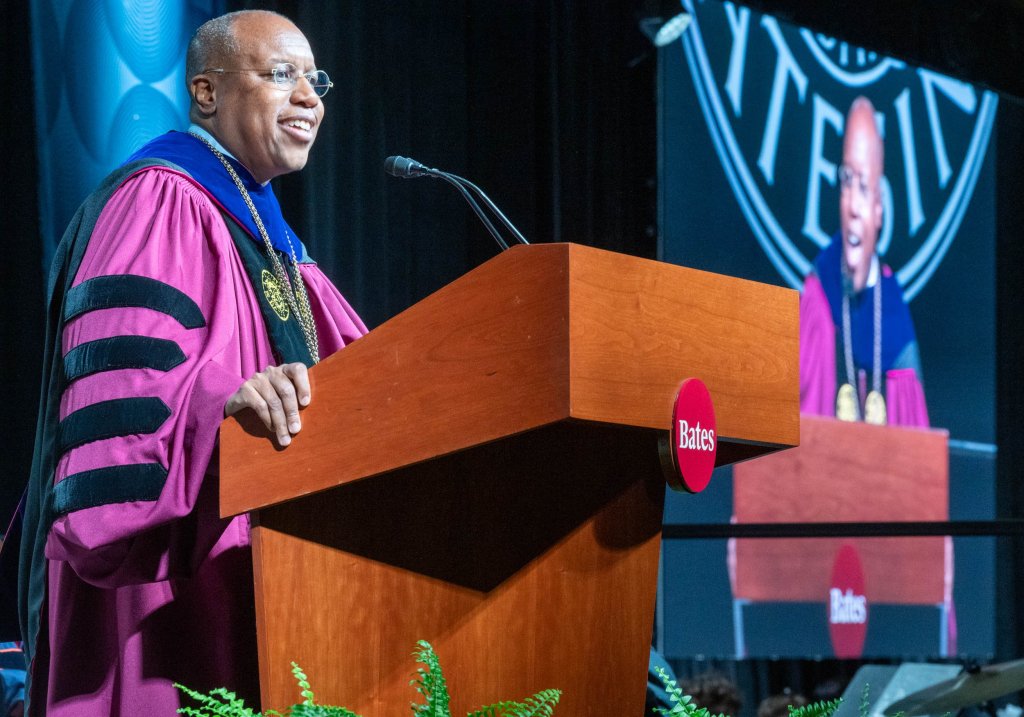
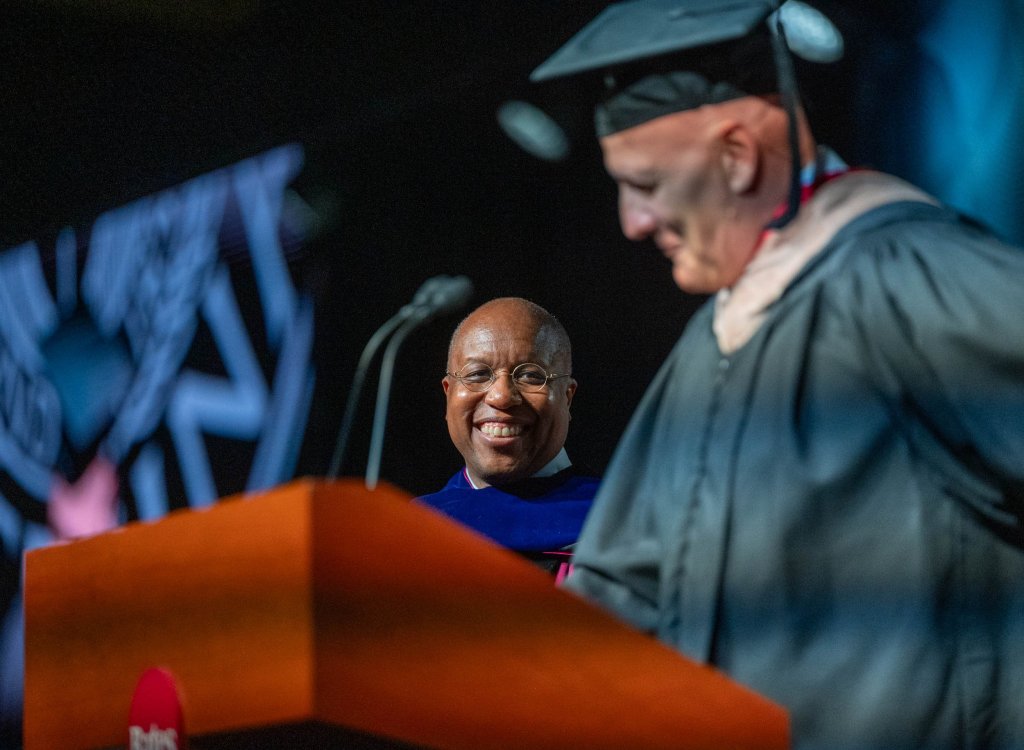
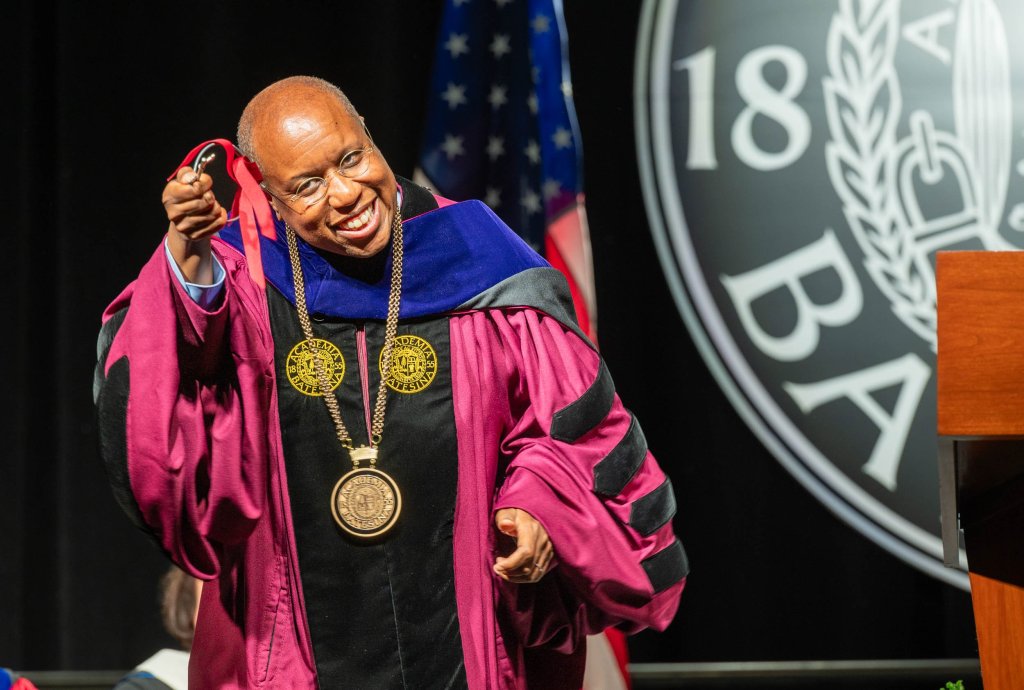


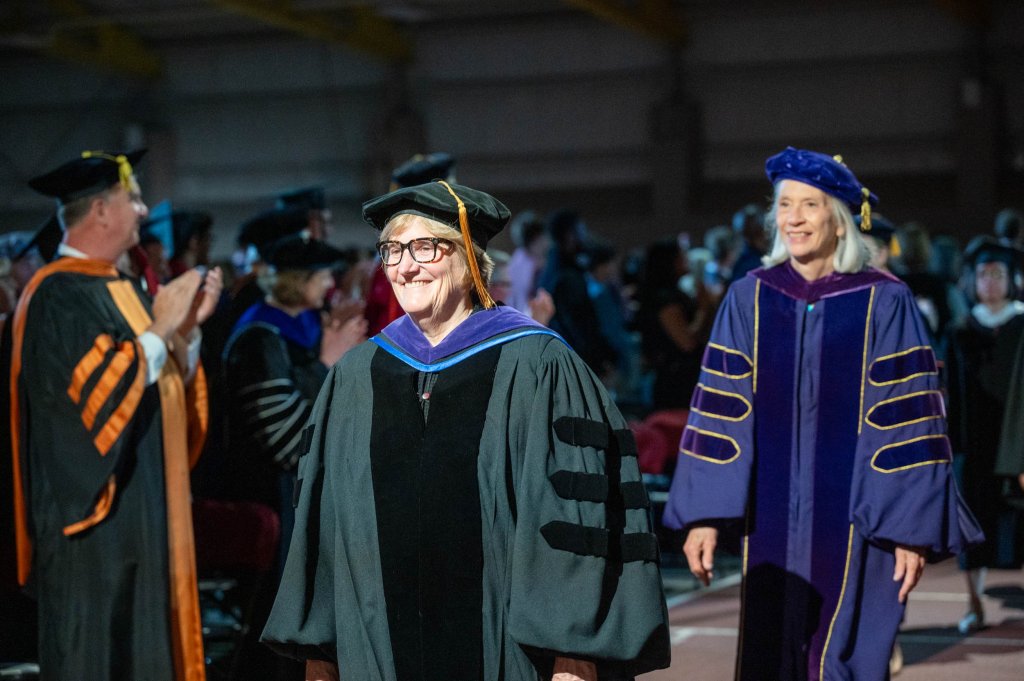




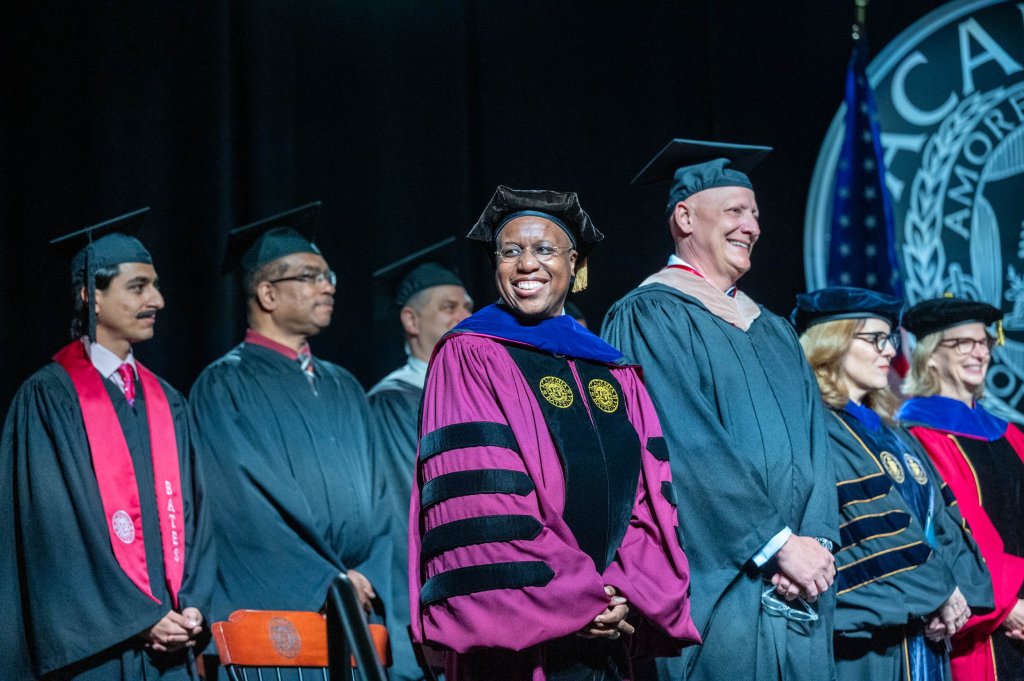

Comments are no longer available on this story